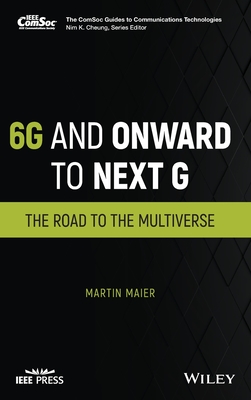Internet of Things and Inter-cooperative Computational Technologies for Collective Intelligence (Studies in Computational Intelligence) 2013th Edition
暫譯: 物聯網與協作計算技術在集體智慧中的應用(計算智慧研究)2013年版
Nik Bessis (Editor), Fatos Xhafa (Editor), Dora Varvarigou (Editor), Richard Hill (Editor), Maozhen
買這商品的人也買了...
-
 SQL Server 2008 R2 資料採礦與商業智慧
SQL Server 2008 R2 資料採礦與商業智慧$580$493 -
 深入淺出 Python (Head First Python)
深入淺出 Python (Head First Python)$780$616 -
 Hadoop 實戰技術手冊
Hadoop 實戰技術手冊$680$578 -
 JavaScript 設計模式 (JavaScript Patterns)
JavaScript 設計模式 (JavaScript Patterns)$480$379 -
 JavaScript 大全, 6/e (JavaScript: The Definitive Guide: Activate Your Web Pages, 6/e)
JavaScript 大全, 6/e (JavaScript: The Definitive Guide: Activate Your Web Pages, 6/e)$1,200$948 -
 《超強圖解》前進 App Store!iOS 6 SDK 實戰演練
《超強圖解》前進 App Store!iOS 6 SDK 實戰演練$950$807 -
 Architecting the Internet of Things (Hardcover)
Architecting the Internet of Things (Hardcover)$6,820$6,683 -
 巨型網站大師親自指導─建立極速的 Web 站台的祕密
巨型網站大師親自指導─建立極速的 Web 站台的祕密$620$527 -
 網站平台全面換血 + 完美優化-Linux 伺服器加速營運 14 大原則
網站平台全面換血 + 完美優化-Linux 伺服器加速營運 14 大原則$680$578 -
 Google 御用網頁語言 Node.js:一流程式設計師養成精華
Google 御用網頁語言 Node.js:一流程式設計師養成精華$490$417 -
 搞懂 NoSQL 的 15 堂課 (NoSQL Distilled 中文版) (NoSQL Distilled: A Brief Guide to the Emerging World of Polyglot Persistence)
搞懂 NoSQL 的 15 堂課 (NoSQL Distilled 中文版) (NoSQL Distilled: A Brief Guide to the Emerging World of Polyglot Persistence)$360$306 -
 Effective JavaScript 中文版 | 駕馭 JavaScript 的 68 個具體作法 (Effective JavaScript: 68 Specific Ways to Harness the Power of JavaScript)
Effective JavaScript 中文版 | 駕馭 JavaScript 的 68 個具體作法 (Effective JavaScript: 68 Specific Ways to Harness the Power of JavaScript)$450$382 -
 Big Data 大數據的獲利模式:圖解.案例.策略.實戰
Big Data 大數據的獲利模式:圖解.案例.策略.實戰$360$284 -
 挑戰大數據-Facebook、Google、Amazon 怎麼處理 Big Data?用 NoSQL 搞定每年 100 億顆硬碟資料
挑戰大數據-Facebook、Google、Amazon 怎麼處理 Big Data?用 NoSQL 搞定每年 100 億顆硬碟資料$580$493 -
 王者歸來-進擊的伺服器 用 Nginx 取代 Apache 建立全語言種類的雲端網站
王者歸來-進擊的伺服器 用 Nginx 取代 Apache 建立全語言種類的雲端網站$780$663 -
 $354Nginx 高性能 Web 服務器詳解
$354Nginx 高性能 Web 服務器詳解 -
 HBase-搞定 BigData-NoSQL 實戰(HBase in action)
HBase-搞定 BigData-NoSQL 實戰(HBase in action)$520$406 -
 微互動 Microinteractions (Microinteractions: Designing with Details)
微互動 Microinteractions (Microinteractions: Designing with Details)$480$379 -
 Next Generation of Data Mining (Hardcover)
Next Generation of Data Mining (Hardcover)$3,980$3,781 -
 $414MySQL 管理之道-性能調優高可用與監控
$414MySQL 管理之道-性能調優高可用與監控 -
 iOS 8 Swift Programming 錦囊妙計 (iOS 8 Swift Programming Cookbook: Solutions & Examples for iOS Apps)
iOS 8 Swift Programming 錦囊妙計 (iOS 8 Swift Programming Cookbook: Solutions & Examples for iOS Apps)$1,200$948 -
 Collaborative Internet of Things (C-IoT): for Future Smart Connected Life and Business (Hardcover)
Collaborative Internet of Things (C-IoT): for Future Smart Connected Life and Business (Hardcover)$3,600$3,420 -
![Eclipse 4.4 完全攻略, 4/e [Gradle自動化建構Java開發專案]-cover](https://cf-assets1.tenlong.com.tw/images/96259/medium/03.jpg) Eclipse 4.4 完全攻略, 4/e [Gradle自動化建構Java開發專案]
Eclipse 4.4 完全攻略, 4/e [Gradle自動化建構Java開發專案]$620$484 -
 Internet of Things Applications - From Research and Innovation to Market Deployment (River Publishers Series in Communications)
Internet of Things Applications - From Research and Innovation to Market Deployment (River Publishers Series in Communications)$6,060$5,938 -
 $279神經網絡與深度學習
$279神經網絡與深度學習
相關主題
商品描述
Over the past two decades, we have witnessed unprecedented innovations in the development of miniaturized electromechanical devices and low-power wireless communication making practical the embedding of networked computational devices into a rapidly widening range of material entities.
This trend has enabled the coupling of physical objects and digital information into cyber-physical systems and it is widely expected to revolutionize the way resource computational consumption and provision will occur. Specifically, one of the core ingredients of this vision, the so-called Internet of Things (IoT), demands the provision of networked services to support interaction between conventional IT systems with both physical and artificial objects. In this way, IoT is seen as a combination of several emerging technologies, which enables the transformation of everyday objects into smart objects. It is also perceived as a paradigm that connects real world with digital world.
The focus of this book is exactly on the novel collective and computational intelligence technologies that will be required to achieve this goal. While, one of the aims of this book is to discuss the progress made, it also prompts future directions on the utilization of inter-operable and cooperative next generation computational technologies, which supports the IoT approach, that being an advanced functioning towards an integrated collective intelligence approach for the benefit of various organizational settings.
商品描述(中文翻譯)
在過去的二十年中,我們見證了微型化機電裝置和低功耗無線通信的前所未有的創新,使得將網絡計算設備嵌入到迅速擴展的各種物質實體中變得可行。這一趨勢使得物理對象和數位信息的結合成為可能,形成了網絡物理系統(cyber-physical systems),並廣泛預期將徹底改變資源計算消耗和供應的方式。具體而言,這一願景的核心要素之一,即所謂的物聯網(Internet of Things, IoT),要求提供網絡服務以支持傳統IT系統與物理和人工對象之間的互動。因此,物聯網被視為幾種新興技術的結合,這些技術使日常物品轉變為智能物品。它也被認為是一種將現實世界與數位世界連接的範式。
本書的重點正是實現這一目標所需的新型集體和計算智能技術。雖然本書的一個目的是討論所取得的進展,但它也促進了對於可互操作和合作的下一代計算技術的未來方向的思考,這些技術支持物聯網的方法,並朝著為各種組織環境的利益而整合的集體智能方法邁進。
























